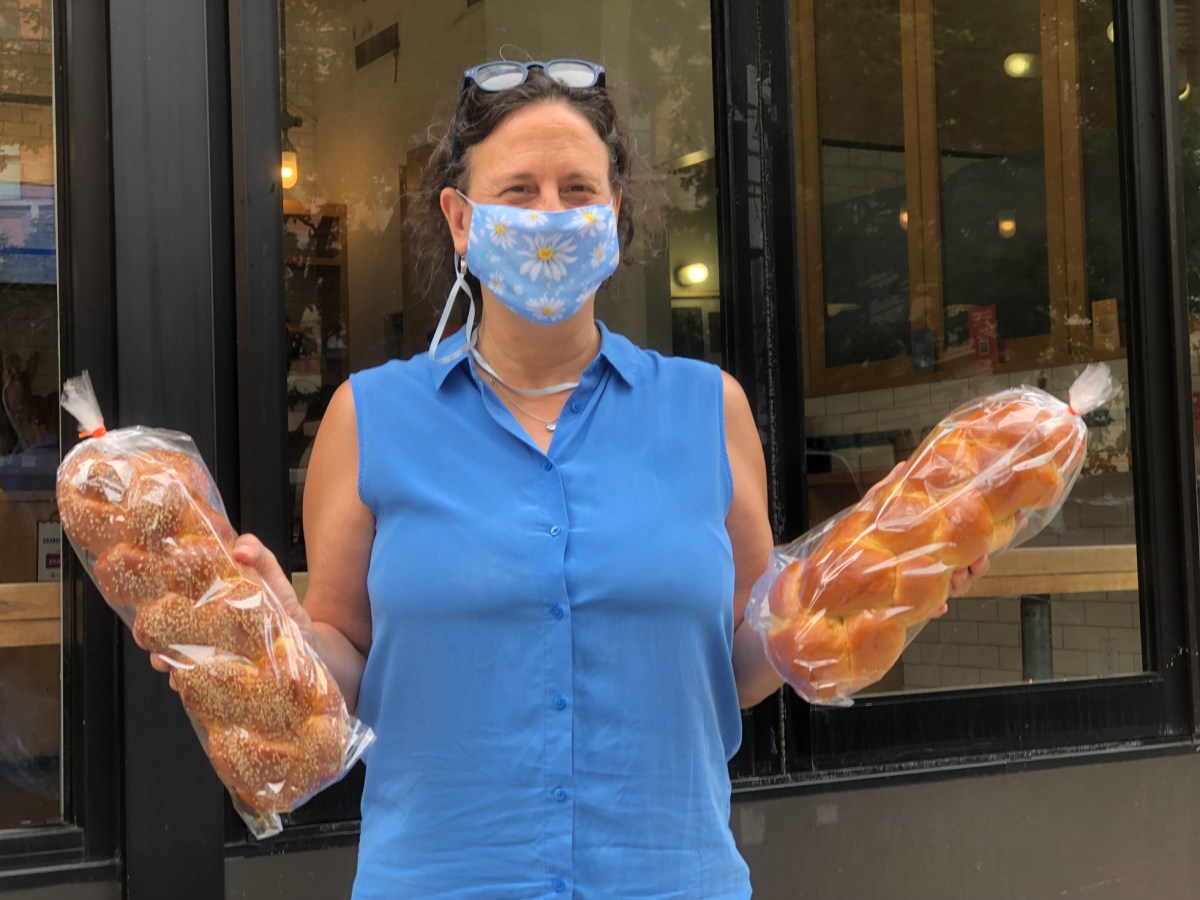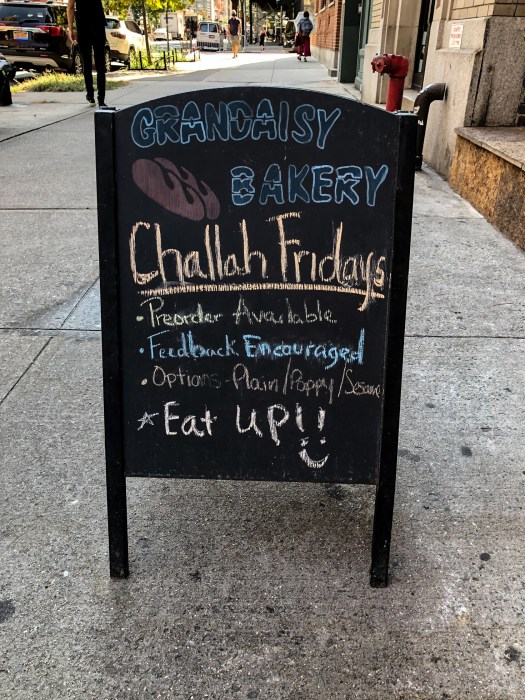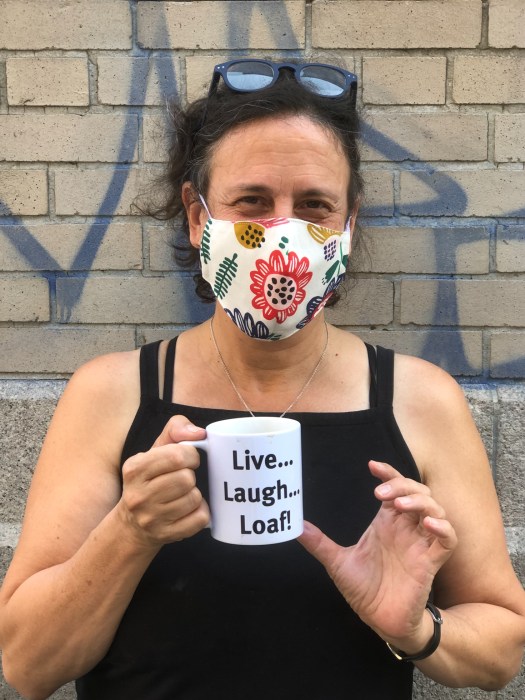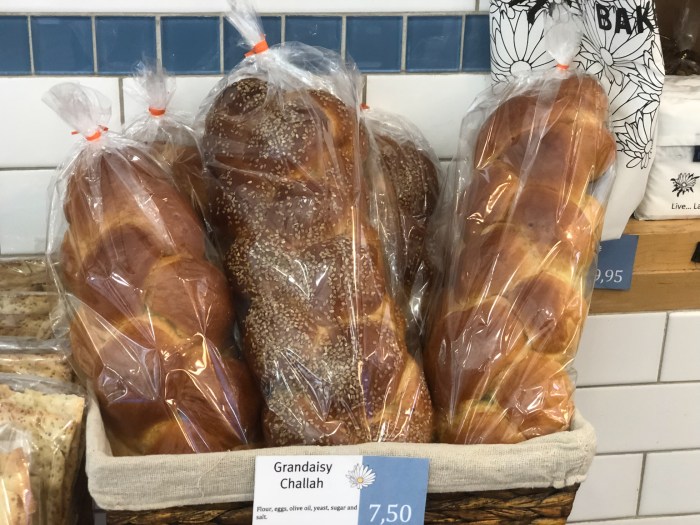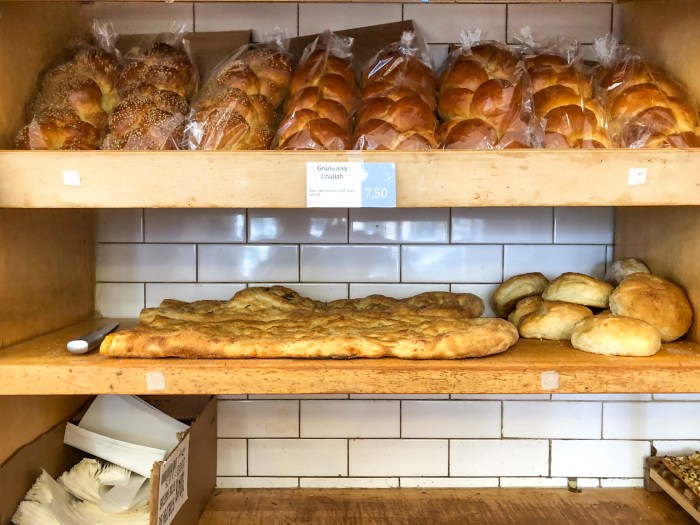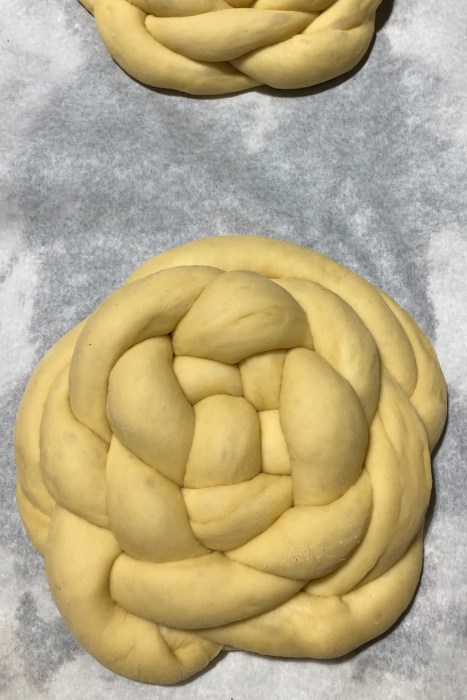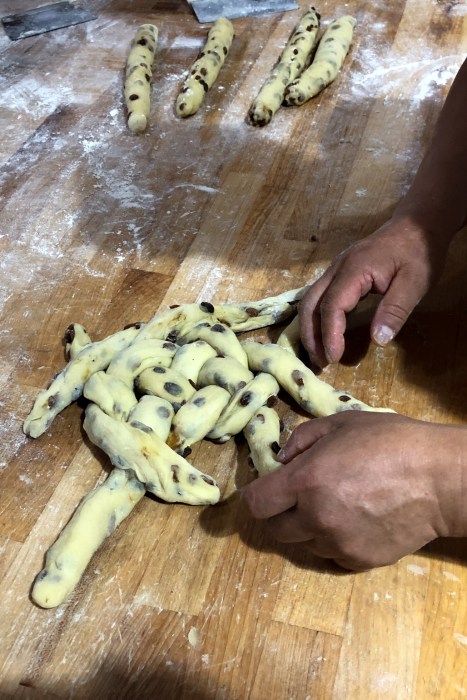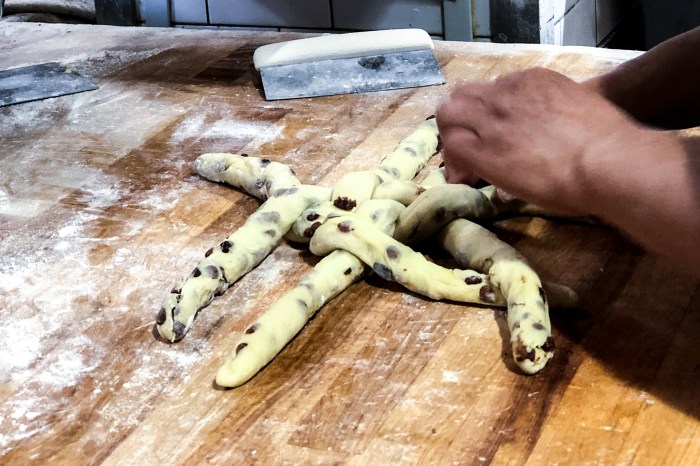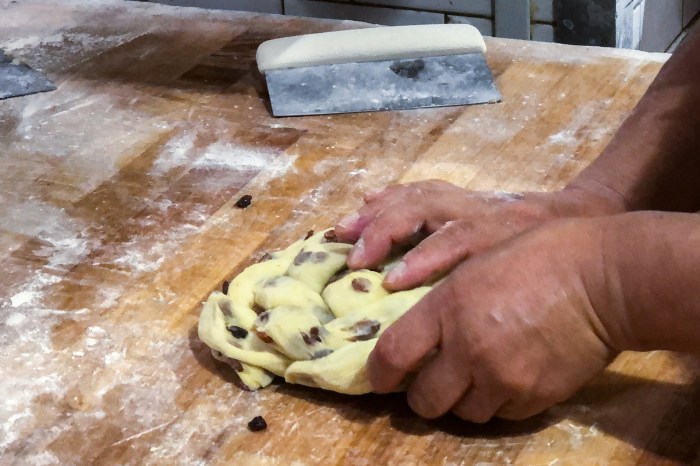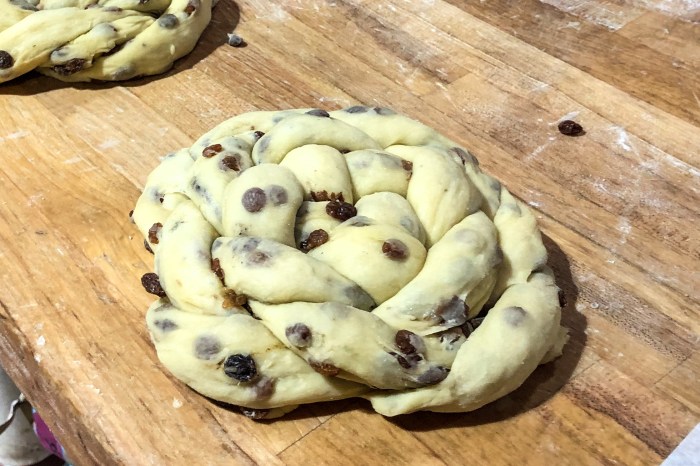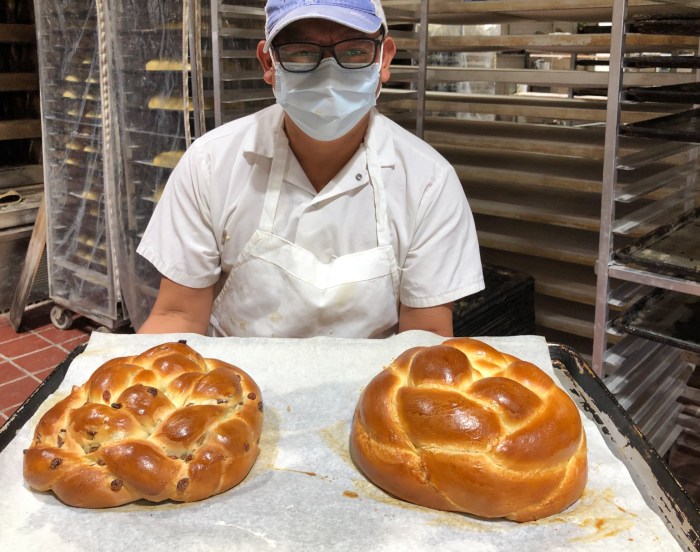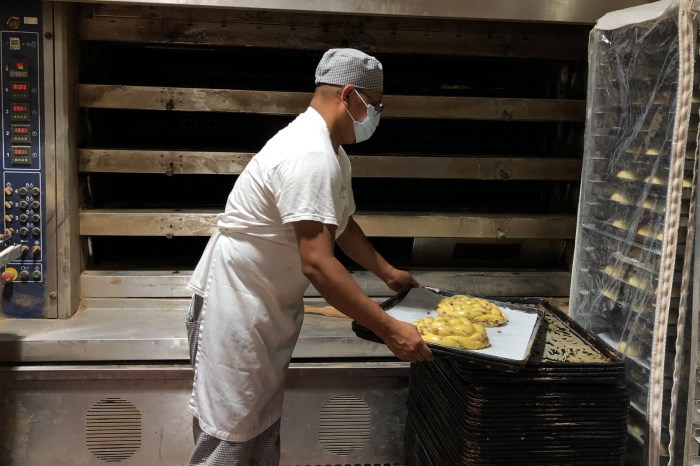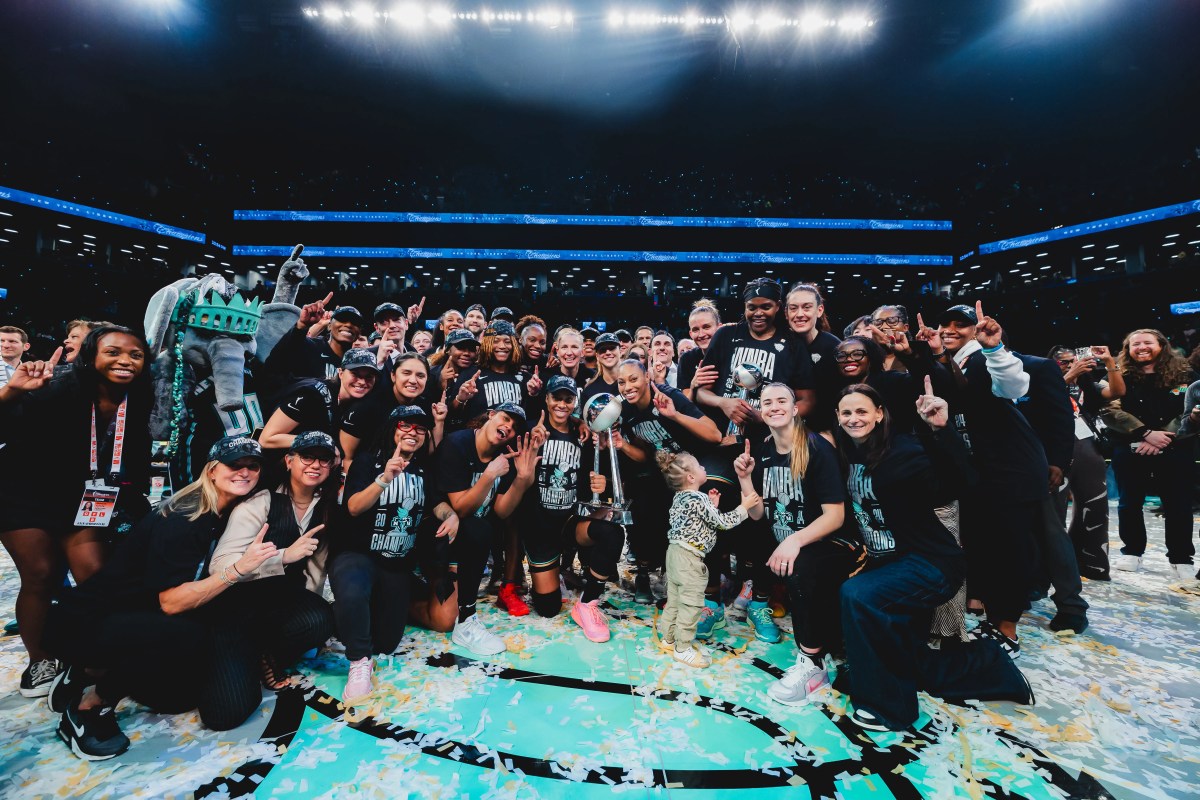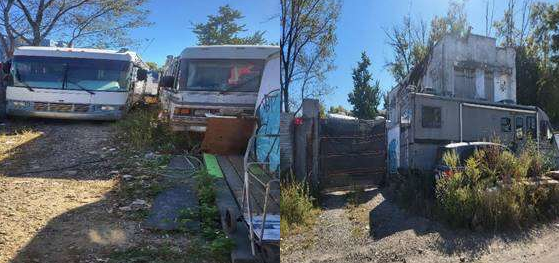BY TEQUILA MINSKY
Why is the artisanal Tribeca Italian bakeshop—Grandaisy Bakery—making challah, let alone a specialty Rosh Hashanah round loaf? Do you want it with or without raisins? And why round?
The bakery is inspired by northern Italian bakery traditions.
“The round Rosh Hashanah loaf symbolizes how the year is round as well as how life is a circle, ” says Grandaisy bakery owner Monica Von Thun Calderó, also suggesting that it looks like a crown. Monica repeats what research and observant friends tell her about traditions that reflect the life-affirming holiday.
Rosh Hashanah, the Jewish New Year 5781 begins sundown on September 18, when a traditional meal, including a round challah is often eaten.
“And the raisins are to have a sweet year,“ Monica adds, admitting with a broad smile that she’s heard there is great controversy over “to raisin or not to raisin.” So she is baking both.
“Our customers have been clamoring for us to bake challah for years,” Monica asserts. And, for six weeks, Grandaisy has added Friday-only classic challah loaves to their product line. This special shape is just for Rosh Hashanah.
Foodies choose rich eggy challah, which is close to brioche, when making French toast. With biblical antecedents and an Eastern European legacy, the intricately braided bread is traditionally eaten during the Jewish sabbath and other holiday meals.
For 14 years, Grandaisy Bakery has been supplying New York City restaurants— Italian and as well as many others —with some of the City’s tastiest breads. And, neighbors stop at the West Broadway and Beach Street location picking up the bakery’s signature sourdough, baguettes, ciabatta, flatbread and multigrain loaves among the lineup of goods.
When New York City went on Pause, March 16, the essential service Grandaisy Bakery never closed!
Meanwhile, Monica saw her wholesale business—mostly restaurants that shuttered—drop 90%. Her workforce went from 85 to 9. But the bakery baked on.
At the height of those isolating times, downtown neighbors buying takeout items got the slightest semblance of normality, stopping there for a bread/coffee fix, to go.
During these past five months, Monica has adopted a modus operandi: face challenges, adapt, and persist.
With some restaurants opening, the bakery now been able to expand its staff to about 40% of what it had been.
“This hiatus gave us the opportunity to explore new products like challah,” says Monica. She adds that as the ovens cool from the day’s bake at 500 degrees, the cooler oven temperature is right for baking challah.
After mixed challah dough rests overnight, head baker Julio Guarchaj rolls 18” logs, one-inch in diameter, and arranges them in a crisscross pattern, getting ready to braid the bunch.
His nimble fingers get to work and before you can say ‘round braided Rosh Hashanah challah’, the circular loaf is shaped and set aside to rise for a couple more hours.
Before baking, the loaf is brushed with an egg wash to assure its golden sheen.
In late June, Guarchaj began testing recipes until the flour, eggs, yeast and extra virgin olive oil proportions were perfect, discarding plenty of trail runs. “You can’t mix the dough too much or the crust will crack,” he imparts a tip. And braiding? He watched a lot of youtube videos. This head baker has worked along with Monica for 20 years.
A sandwich board in front of Grandaisy announces the new item, which can be ordered in advance, on-line to be picked up on Fridays.
Preparing challah is an 18-hour process so the bakery needs to know how many loaves to bake. Monica advises, “We’re taking orders for these special Rosh Hashanah loaves on Monday through Wednesday before the holiday.” Visit www.grandaisybakery.com to order online.



